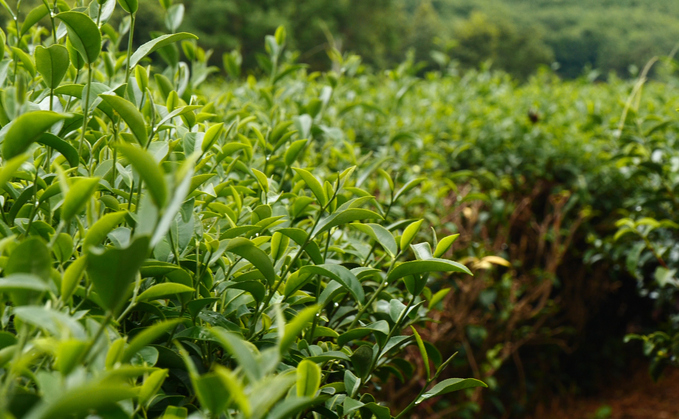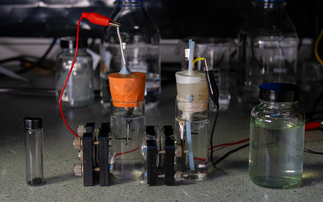Credit: iStock
Research aims to enhance scientific understanding of tea production and advance efforts to reduce the sector's environmental footprint
Lipton Teas and Infusions has kicked off field trials in Kenya that aim to bolster the climate resilience and improve the environmental footprint of tea production worldwide.
The tea giant announced yesterday it would be working with Cranfield University on the trials, which are being funded by the Biotechnology and Biological Sciences Research Council (BBSRC) and the UK Tea & Infusions Association.
The research partnership will use drone imagery and analysis to improve crop management, enable precision farming, and provide canopy phenotyping to support the development of more climate resilient tea plant varieties, the company said.
Emissions data captured by the researchers will be used to inform a new carbon accounting methodology being developed for the tea industry by North American industry groups the Tea & Herbal Association of Canada and the Tea Association of the USA.
Professor Leon Terry at Cranfield University said the research would help establish more sustainable practices within the tea industry. "The BBSRC grant, the deep technical expertise of our leading scientists, and the support of a tea company with the scale and experience of Lipton Teas and Infusions, will ensure well-informed first-class research supports a sustainable future for tea," he said.
Tea is the most consumed drink in the world, after water. But a paper published by the UN's Food and Agricultural Organisation earlier this year said there were "several factors" which challenged the environmental sustainability of the tea sector, including land use change and deforestation driven by the expansion of plantations and the overuse of fertilisers and pesticides by farmers, which leads to soil degradation and erosion and water pollution.
The research also highlighted how tea is both affected by climate change, with extreme weather events set to hurt crop yields and quality, and can play a significant role in mitigating climate change by providing a carbon sink.
Lipton Teas and Infusions said its latest field trials would "add to scientific understanding of tea production" and lead to better quality tea, less wastage, and a lower environmental footprint.
Taisa Hansen, chief research and innovation officer of Lipton Teas and Infusions, said the partnership would work to "identify the key innovations that this industry requires".
"We are moving fast because climate change will not wait," she said. "Our profound thanks go to BBSRC and UKTIA as, together, this multi-million-euro project will support the entire tea industry and further our mission to create value for all."
You can now sign up to attend the fifth annual Net Zero Festival, which will be hosted by BusinessGreen on October 22-23 at the Business Design Centre in London.










